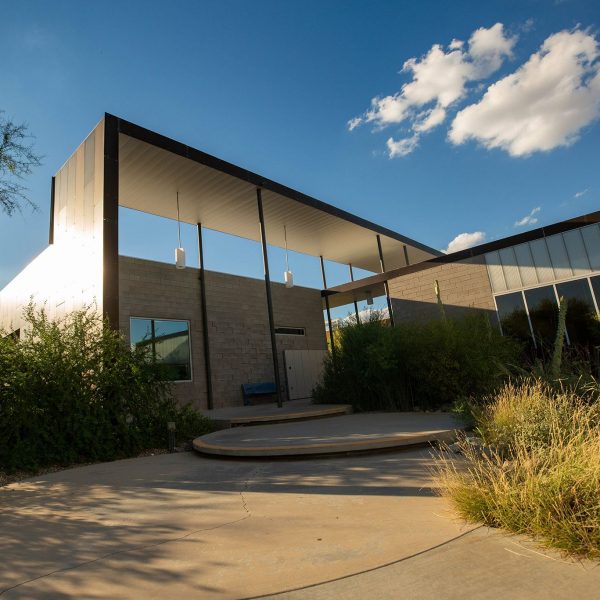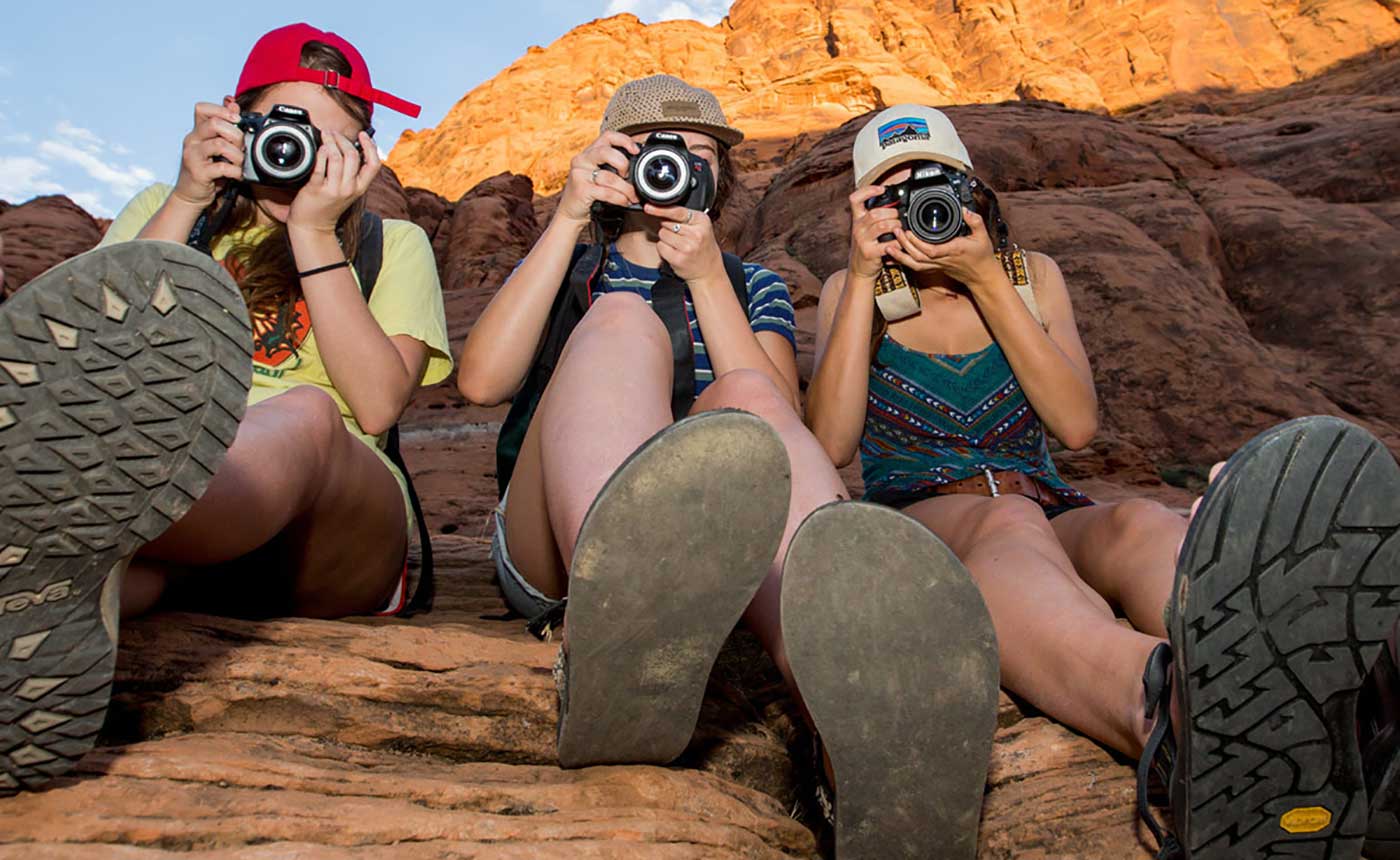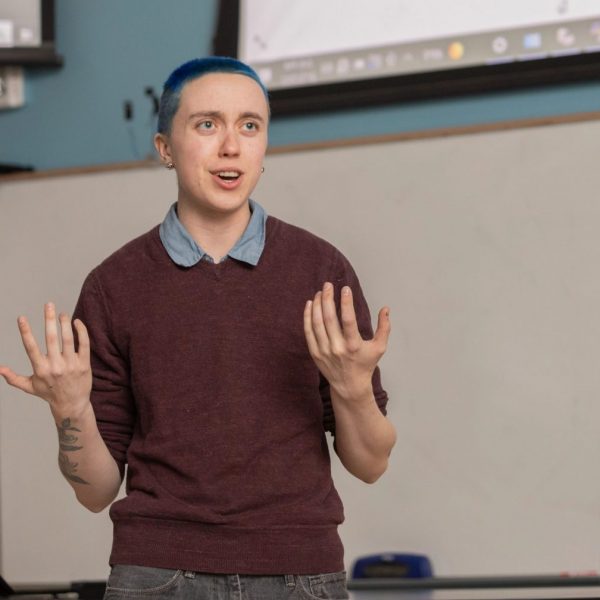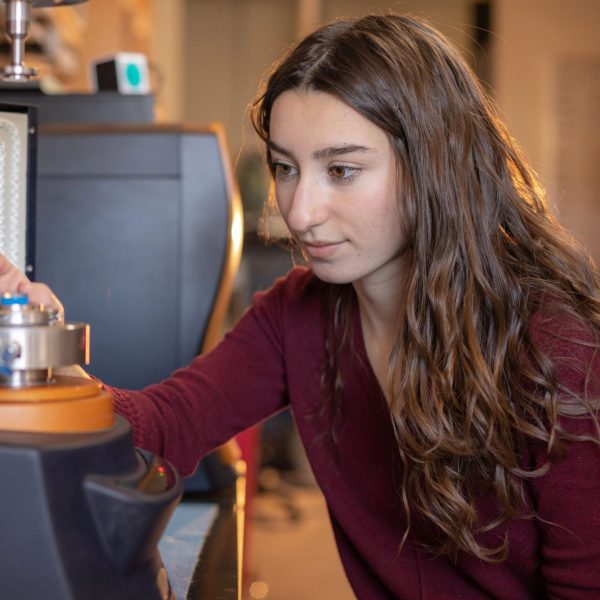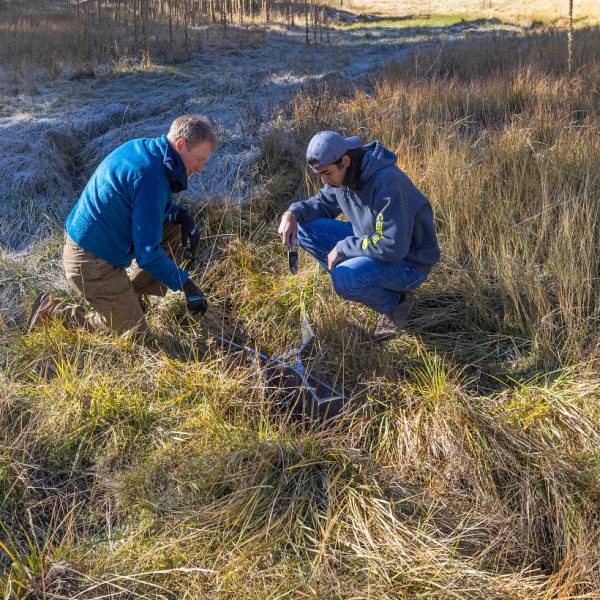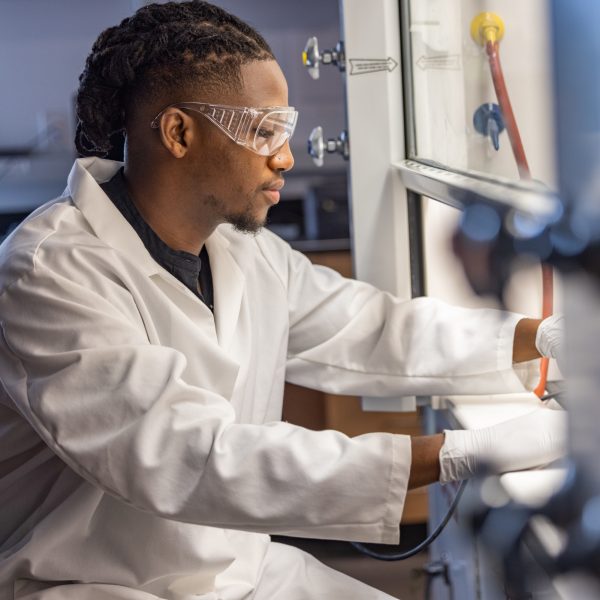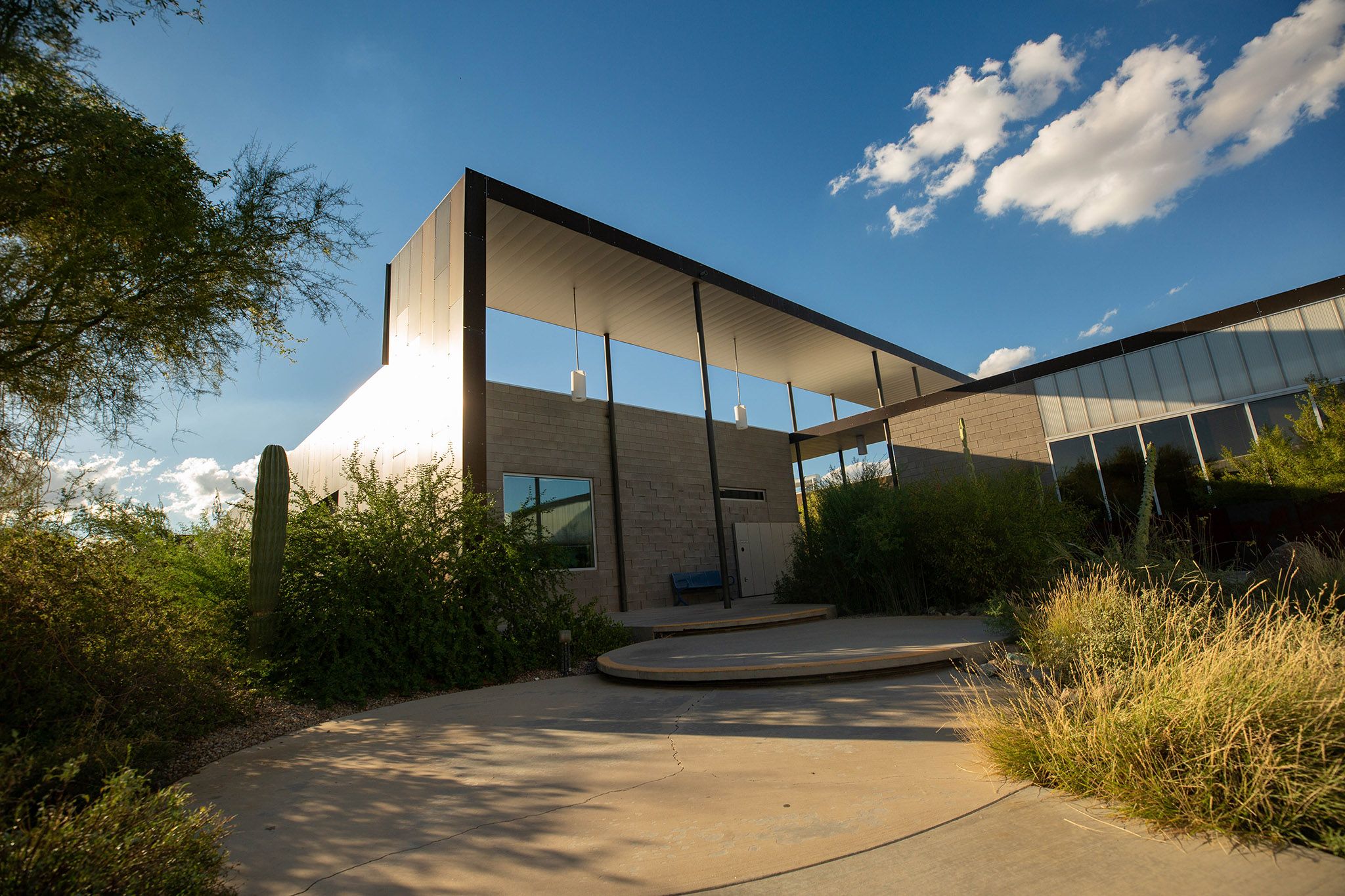
Sophia Alme and Maria Salazar, members of the NAU at Scottsdale Community College inaugural Biology cohort, are collaborating on three significant projects during their final semester.
Salazar and Alme are part of a new generation of scientists changing the way humans interact with our ecosystems. They are conducting research as they finish their bachelor’s degrees in Biology through NAU at Scottsdale Community College (SCC).
A love for science
Salazar’s major project involves examining apple snails (Pomacea canaliculata), an invasive species that likely hitchhikes its way from South America to the United States via boats and the home aquarium trade.
“With increasing water temperatures, we expect the opportunities for this invasive species to spread,” she says. “The first step to mitigation is to find how rising temperatures affect them.” Salazar added that apple snails are difficult to control because they reproduce early and rapidly and have no known predators, noting that her main collaborator, Alme, “found the Salt River [near Phoenix] overrun with them.”
Salazar recalls a love for the natural environment from an early age and knew her passion would likely lead her to one of two career paths: politics or science. “Since high school, I knew a change needed to be made in terms of pollution, deforestation,” Salazar says. “I chose to get into research to find actual ways to mitigate the problems.”
Alme describes science and math as her “main loves.” As an SCC student, she met biology professor John Weser, who encouraged her to pursue a bachelor’s in Biology through the NAU program at SCC. Continuing her education to earn her bachelor’s degree allowed her to incorporate mathematical modeling into her studies. Alme’s specialty is pollution and contamination, and her current major project focuses on macroplastics found in soil. Macroplastics are larger than half a centimeter—for example, pieces of a plastic bag.
“We know that plastic contaminants enter food through the ocean, so we began looking at macros and how they affect the soil, using potting soil as a standard baseline,” she says. “We just started planting in pots to study the effects on roots. It’s a very simple project, but it might result in bigger discoveries.”
Alme and Salazar are also collaborating, along with fellow cohort peer Amanda Shelley, on a study of Tribolium castaneum, commonly known as the red flour beetle. Alme describes the beetle as “a highly controlled grain pest” and explains the project is a pilot for a bigger study on how life works conducted by John Nagy, an SCC biology professor who teaches molecular genetics for the NAU biology program.
Help from biology professors
Two professors in the Bachelor of Science in Biology cohort program, Weser and his colleague Patty Ashby, have been particularly influential to Salazar and Alme, opening doors to meaningful research opportunities.
Alme explains the professors are not only dedicated to teaching, but also excited about discussing research and how it affects people and nature. “They bring up controversies and encourage us to talk through them,” she says. “They allow me to be myself—not just me but other students, too. And allow us to follow our interests. I don’t feel like I’m stuck in a cookie-cutter position. They find our interests and present opportunities specifically for those interests. I think that’s so special.”
Alme says the research process seemed abstract and unachievable before working hands-on with her professors. “I thought, ‘No way I can achieve that.’ But my professors have walked me through the processes and shown me how it’s possible,” she says. “Now I’m working on three projects that are about my ideas. I find that so valuable, so empowering—to become a professional researcher.”
Salazar agreed with Alme’s assessment of the professors, applauding the way they teach and how much they care despite their busy schedules. “All of these projects wouldn’t be possible without them,” Salazar says. “I got a Hooper Undergraduate Research grant because of Dr. Weser’s and Dr. Ashby’s Writing for Biological Sciences course. We had to write a mock grant proposal, and Dr. Ashby and Dr. Weser helped me refine it.”
During the 2022 Undergraduate Research Symposium, Salazar presented her abstract on the apple snail project, titled “Impacts of Increasing Water Temperatures due to Climate Change on the Reproduction Rates of the Invasive P. canaliculata.”
The respect and learning between NAU students and professors is a two-way street. In a joint statement, Ashby and Weser write, “Maria and Sophia are both eager, enthusiastic learners who stimulate and challenge us with their questions and interests. As mentors, we have grown in our interactions with them. They’ve helped to keep us current with new developments in their areas of research. Their positive energy is contagious, and their curiosity is a daily reminder of why we love science and teaching.”
NAU at SCC: opportunities for discovery
The SCC facility itself provides rich opportunities for discovery. “The Scottsdale campus feels like the middle of a nature preserve,” Alme says. “All the classrooms face the outdoors; you’re looking at vegetation all day. It doesn’t get any better than that.”
Salazar adds that students have extensive access to labs and amenities at SCC, such as the Center for Native and Urban Wildlife (CNUW). She first visited CNUW during a trip with her middle school environmental club and was awed by the diversity of life in the facility—and its mission to protect ecosystems. “As an NAU student, I’ve been invited on butterfly counts, bird counts, and helped restore burrows for burrowing owls,” she says. “Also, we have this amazing building called Toad Hall with all kinds of salamanders, turtles, snakes, and chuckwallas (giant desert lizards).”
Salazar participated in CNUW’s efforts to educate the surrounding community on wildlife restoration through a conservation expo. “I got to interact with young people and the general public and invited them to interact with a gopher snake I was holding,” she says. “I explained that these snakes aren’t poisonous and are good citizens that help control unwanted pests.”
Alme says the advantage of the small classes is that they allow students to form close-knit bonds. “Our cohort has grown together and become stronger as a team, which is really the only way to work these days,” she says. “In higher-level classes, we’re not always working on new research. There’s a lot of value in talking about our research, the next step, and how we can improve on it.”
Both Salazar and Alme say they are grateful for the autonomy they’ve been allowed through their NAU undergraduate research projects.
Dr. Nagy emphasizes that it’s about the next steps, Salazar says. “We are the next to figure out how to mitigate problems in the environment. It is achievable.”
NAU science degree offered in the Phoenix area
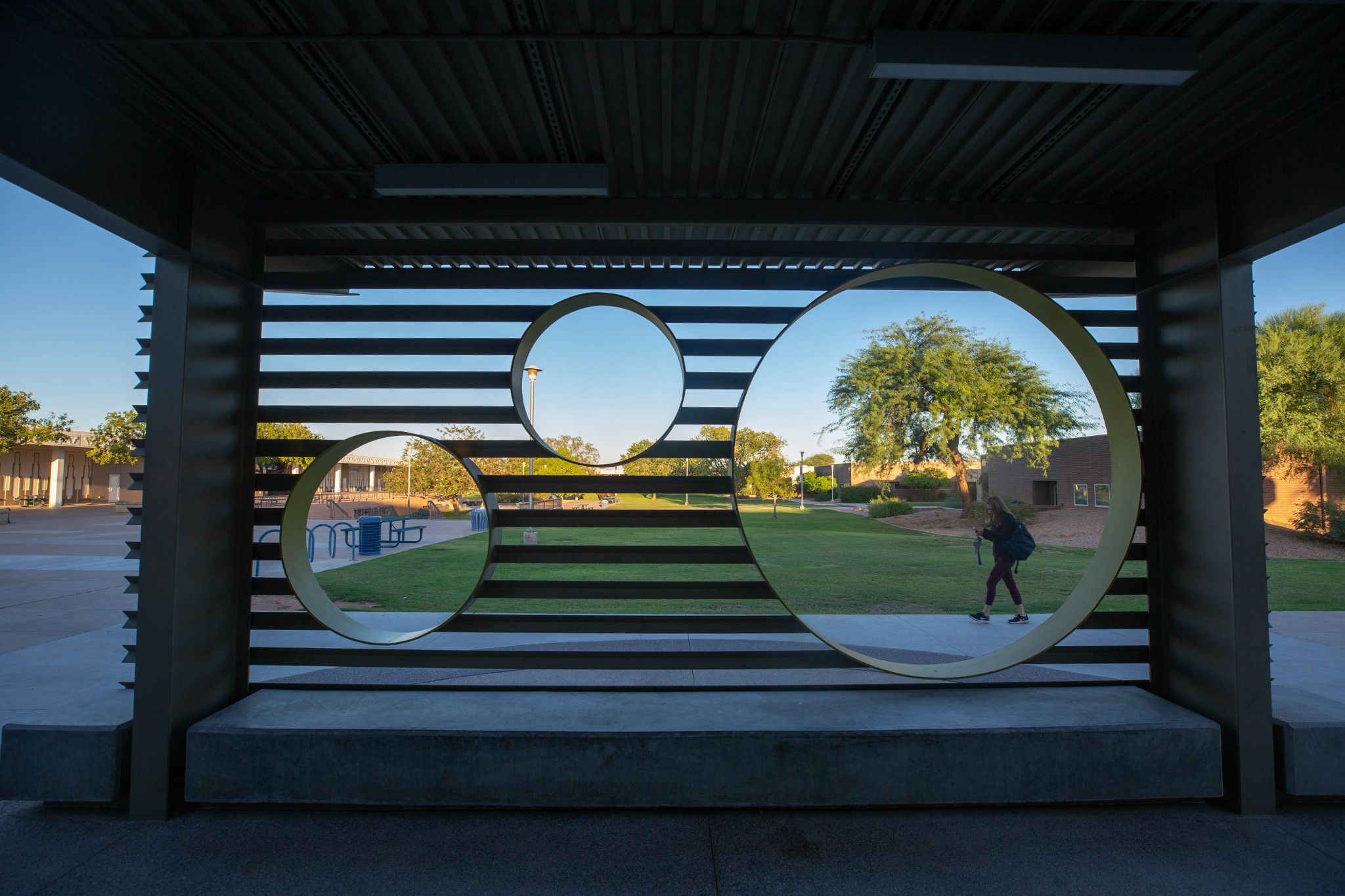
Sophia Alme and Maria Salazar studied Biology at Scottsdale Community College (SCC). Through the 2NAU pathway program, Alme and Salazar transferred to NAU and started the NAU at SCC Biology cohort in fall 2020. This May 2022, they will be members of NAU’s first SCC Biology graduating class from a statewide location.
NAU offers the 2NAU pathway program in partnership with all of Arizona’s community colleges. By participating in 2NAU during community college, you will receive guidance to help ensure you are taking the right classes for your NAU degree. You can then transfer to a bachelor’s degree program in Flagstaff, Statewide, or Online.
What you should know about the Bachelor of Science in Biology program at SCC:
- complete lower-division courses at the community college, then transfer to NAU at SCC
- complete your upper-division NAU classes on-site at SCC
- you do not have to transfer from SCC—you can transfer from anywhere and finish your NAU biology degree on-site at SCC
- the 2NAU pathway program helps ensure you are taking the right courses for the degree, and provides a merit scholarship opportunity
Contact your NAU coordinator for more information about transferring to NAU.

